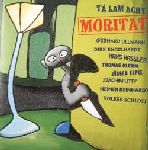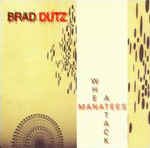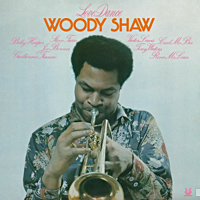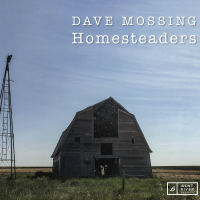Home » Jazz Articles » Album Review » Gebhard Ullmann: Moritat
Gebhard Ullmann: Moritat
Enlisting the talents of six other reed players plus Hassler, and calling the group Ta Lam Acht, Ullmann could now write and arrange for people who could add their personalities to the music, and the playing is stunning.
Since the group has no percussionist or bassist, any rhythmic drive has to come from the instrumental lines themselves, and because no chordal instrument is present, all harmony must come from the part writing. This gives the music a floating quality, detaching it from the ground and rendering it more abstract. However, the low reeds do provide a bottom to the airborne enterprise.
The compositional qualities that made Ta Lam so unique and intriguing are present and even intensified in Moritat due to the live rather than overdubbed playing. While there are very few actual harmonic progressions (except on Kurt Weill's "Die Moritat Von Mackie Messer" (aka "Mack The Knife"), the music is not atonal and does have some kind of tonal center that might seem ambiguous but can be felt.
An Ullmann composition is not a simple thing, having both written-out and free sections. Beyond that, however, each piece has a personality, defined by a kernel that could be a melodic gesture, but which might also be a voicing combined with a rhythm. This kind of "amorphous identification" allows a piece to be reworked for a different group, while still maintaining its identity.
A number of pieces make their reappearance here: both "D. Nee No" and "Heaven No. 2.4" can be found on Ta Lam, while "Black Cat" was first recorded on Ullmann-Rava-Willers-Lillich-Schäuble (Nabel, 1989). In all three cases, the piece is quite recognizable, admittedly with familiarity, and yet is obviously quite different in its arrangement or even intent. This is a core feature of Ullmann's working methodology and bears close watching as his career continues.
Humor, combined with a seriousness of purpose is a big part of Ullmann's style, and "Die Moritat Von Mackie Messer" is very funny primarily because its familiarity is challenged by its deconstruction and reorganization. Ullmann takes apart the melody and the harmony of the tune and yet allows its essence to be recognizable. The last track, Hassler's "Moritatenblut," played solo by the accordionist, contains a last comment on the tune, and shows how close he is to Ullmann's way of thinking.
These seventeen wonderful miniatures also contain the first appearance of "Basement Research," a study in the depths of the reeds, and which would go on to become the name of an ongoing project.
Moritat, together with Ta Lam, are important recordings that encapsulate Ullmann's musical language, which continues to be developed to this day.
Track Listing
Reg Alien (Part One); D. Nee No; Obersch
Personnel
Gebhard Ullmann
saxophoneDirk Engelhardt: soprano saxophone, tenor saxophone, bass clarinet, voice; Hans Hassler: accordion, voice; Thomas Klemm: tenor saxophone, alto flute, wood flute, voice, kalimba; J
Album information
Title: Moritat | Year Released: 2007 | Record Label: 99 Records
Tags
PREVIOUS / NEXT
Support All About Jazz
 All About Jazz has been a pillar of jazz since 1995, championing it as an art form and, more importantly, supporting the musicians who make it. Our enduring commitment has made "AAJ" one of the most culturally important websites of its kind, read by hundreds of thousands of fans, musicians and industry figures every month.
All About Jazz has been a pillar of jazz since 1995, championing it as an art form and, more importantly, supporting the musicians who make it. Our enduring commitment has made "AAJ" one of the most culturally important websites of its kind, read by hundreds of thousands of fans, musicians and industry figures every month.





















